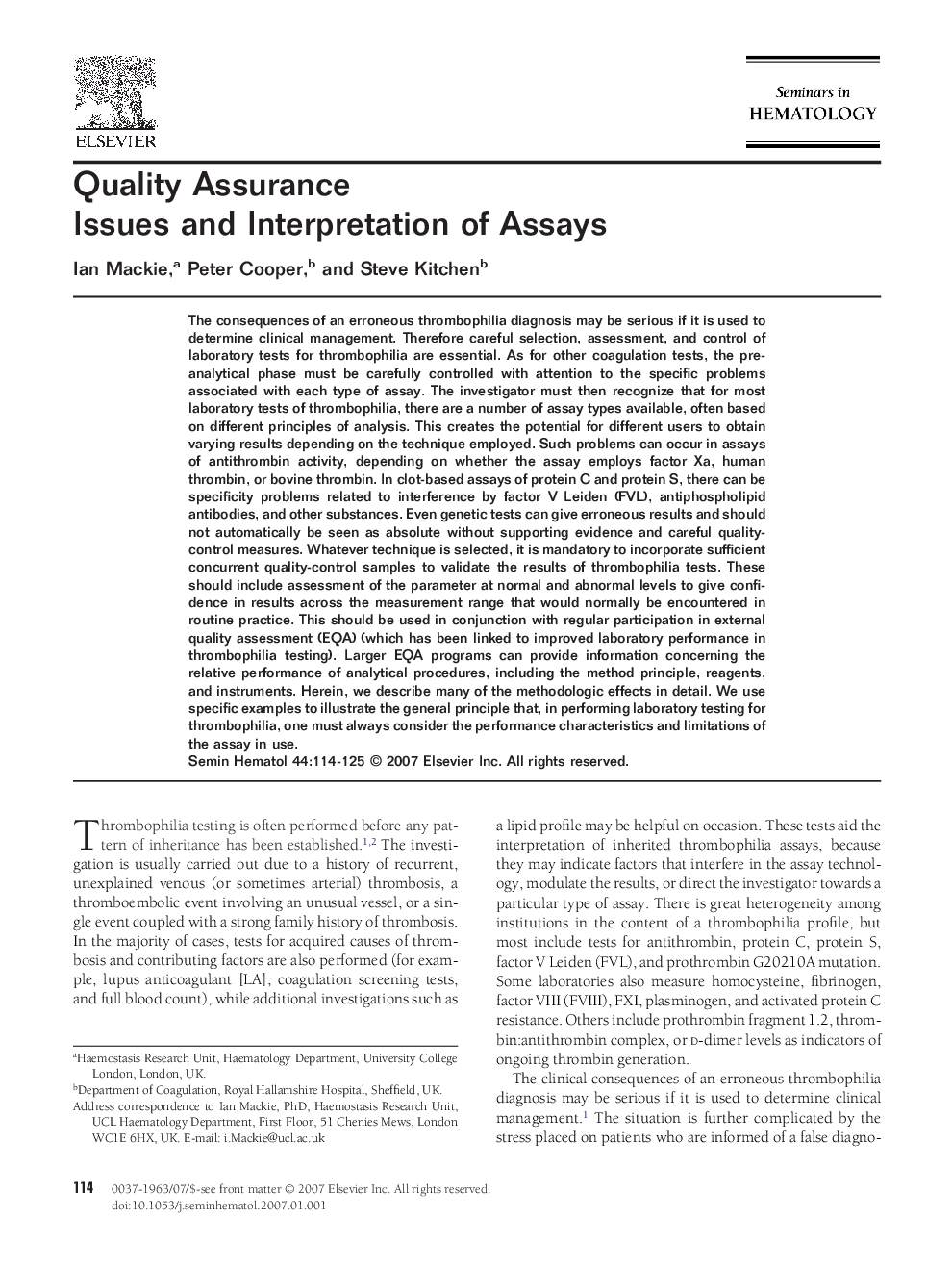| کد مقاله | کد نشریه | سال انتشار | مقاله انگلیسی | نسخه تمام متن |
|---|---|---|---|---|
| 3333935 | 1213349 | 2007 | 12 صفحه PDF | دانلود رایگان |

The consequences of an erroneous thrombophilia diagnosis may be serious if it is used to determine clinical management. Therefore careful selection, assessment, and control of laboratory tests for thrombophilia are essential. As for other coagulation tests, the pre-analytical phase must be carefully controlled with attention to the specific problems associated with each type of assay. The investigator must then recognize that for most laboratory tests of thrombophilia, there are a number of assay types available, often based on different principles of analysis. This creates the potential for different users to obtain varying results depending on the technique employed. Such problems can occur in assays of antithrombin activity, depending on whether the assay employs factor Xa, human thrombin, or bovine thrombin. In clot-based assays of protein C and protein S, there can be specificity problems related to interference by factor V Leiden (FVL), antiphospholipid antibodies, and other substances. Even genetic tests can give erroneous results and should not automatically be seen as absolute without supporting evidence and careful quality-control measures. Whatever technique is selected, it is mandatory to incorporate sufficient concurrent quality-control samples to validate the results of thrombophilia tests. These should include assessment of the parameter at normal and abnormal levels to give confidence in results across the measurement range that would normally be encountered in routine practice. This should be used in conjunction with regular participation in external quality assessment (EQA) (which has been linked to improved laboratory performance in thrombophilia testing). Larger EQA programs can provide information concerning the relative performance of analytical procedures, including the method principle, reagents, and instruments. Herein, we describe many of the methodologic effects in detail. We use specific examples to illustrate the general principle that, in performing laboratory testing for thrombophilia, one must always consider the performance characteristics and limitations of the assay in use.
Journal: Seminars in Hematology - Volume 44, Issue 2, April 2007, Pages 114–125